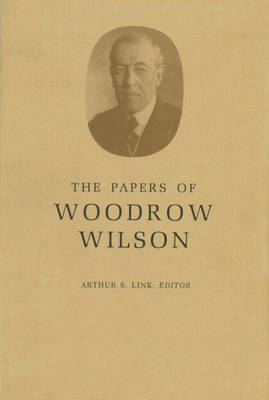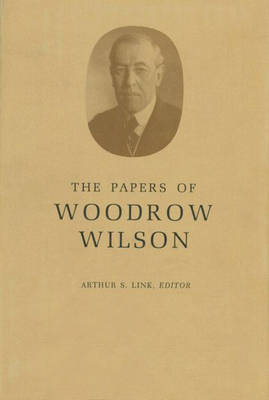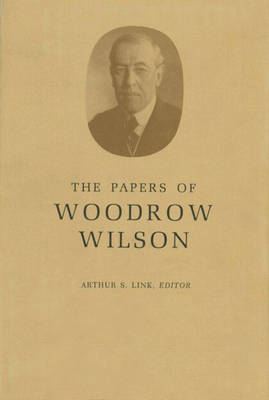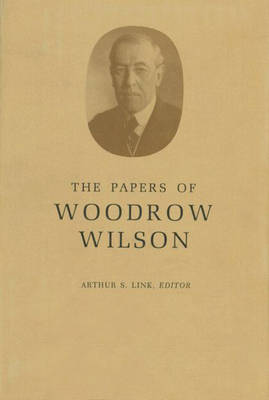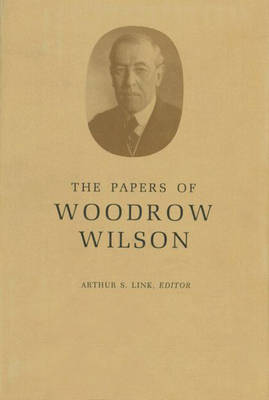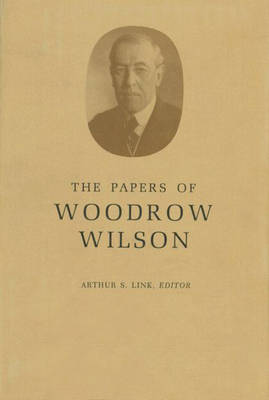Papers of Woodrow Wilson
66 total works
This massive collection includes all important letters, speeches, interviews, press conferences, and public papers on Woodrow Wilson. The volumes make available as never before the materials essential to understanding Wilson's personality, his intellectual, religious, and political development, and his careers as educator, writer, orator, and statesman. The Papers not only reveal the private and public man, but also the era in which he lived, making the series additionally valuable to scholars in various fields of history between the 1870's and the 1920's.
This volume begins on November 9, 1918, the eve of the Armistice between the Allied and Associated Powers and the principal Central Powers, Germany and Austria-Hungary. It ends on January 11, 1919, just before the first plenary session of the Paris Peace Conference. The interval finds Wilson preoccupied with preparations for the conference. Accompanied by a large entourage of State Department officials and "experts" from the Inquiry grup, Wilson sails for France on December 4, convinced that he alone will represent the liberal, forward-looking peoples of the world. After initial meetings with Allied leaders in Paris, he makes triumphal tours of England and Italy. At the same time, he begins to focus his attention on what he now considers to be the foundation stone of future peace -- the League of Nations.
The documents in this volume, covering the period from January 20, 1909 to January 11, 1910, reveal momentous developments in Wilson's thought and in the history of Princeton University. They also cast much light on Wilson the university administrator and budding politician, as well as on his personal relationships. The preparation and delivery of a Lincoln centennial address in Chicago led Wilson to draw a conclusion that served as the theme for his political and educational actions during 1909: the strength and hope of America lies in the common people, not in those born to wealth and special privilege. Wilson applied his egalitarian social ideals to education in 1909 through his continuing crusade for the quadrangle plan both for Princeton and for the nation's colleges, and through his opposition to proposals for the construction of a graduate college separate from the main campus. In political matters, Wilson continued to spurn open alliance with the rising Progressive movement, choosing instead to launch his own movement for political regeneration through the short ballot.
In an address to the Democratic Club of Plainfield, he inaugurated the New Jersey gubernatorial campaign of 1910. Thus this volume provides the background of the violent eruption of the graduate college controversy in the first half of 1910 and of Wilson's decision of July 15 to accept the Democratic nomination for Governor of New Jersey.
In an address to the Democratic Club of Plainfield, he inaugurated the New Jersey gubernatorial campaign of 1910. Thus this volume provides the background of the violent eruption of the graduate college controversy in the first half of 1910 and of Wilson's decision of July 15 to accept the Democratic nomination for Governor of New Jersey.
This massive collection includes all important letters, speeches, interviews, press conferences, and public papers on Woodrow Wilson. The volumes make available as never before the materials essential to understanding Wilson's personality, his intellectual, religious, and political development, and his careers as educator, writer, orator, and statesman. The Papers not only reveal the private and public man, but also the era in which he lived, making the series additionally valuable to scholars in various fields of history between the 1870's and the 1920's.
This massive collection includes all important letters, speeches, interviews, press conferences, and public papers on Woodrow Wilson. The volumes make available as never before the materials essential to understanding Wilson's personality, his intellectual, religious, and political development, and his careers as educator, writer, orator, and statesman. The Papers not only reveal the private and public man, but also the era in which he lived, making the series additionally valuable to scholars in various fields of history between the 1870's and the 1920's.
As this volume opens, the Supreme War Council holds a long session that results in an agreement on the military, naval, and aerial terms to be imposed on Germany. The harmony of this meeting is in stark contrast to the discord of the four heads of government recorded in the balance of the volume. In the weeks covered by these documents, controversy erupts over the disposition of the Rhineland and demands by France to annex the Saar Basin. The fight over reparations reaches a crescendo and is far from resolved as the volume ends. Wilson, Lloyd George, Clemenceau, and Orlando agree to meet secretly, away from the distractions of the Council of Ten, but they are at another impasse by early April. Meanwhile Wilson reconvenes the Commission on the League of Nations in order to obtain amendments to the Covenant necessary for Senate approval of a treaty that includes the Covenant. The statesmen in Paris struggle with a host of difficulties, including the takeover of the Hungarian government by the communist Bela Kun, and Wilson is faced with problems in achieving de facto recognition of the Soviet regime.
In addition, he must deal with domestic controversy between the Industrial Board and the Director General of Railroads.
In addition, he must deal with domestic controversy between the Industrial Board and the Director General of Railroads.
